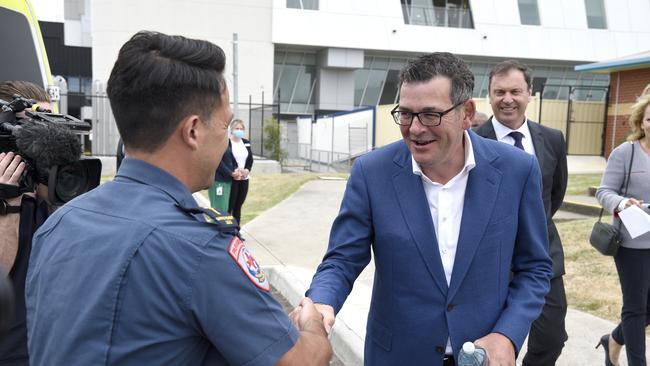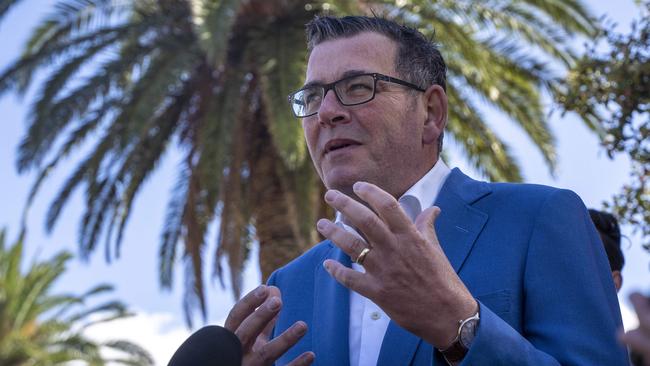Bold welfare plan for Victorian ex-MPs could cost taxpayers billions
Taxpayers could fork out millions to help one group of workers transition into new jobs under a radical proposal.
Work
Don't miss out on the headlines from Work. Followed categories will be added to My News.
A bold proposal to endow former Victorian MPs with up to 18 months of salary while seeking new employment would cost taxpayers millions of dollars.
A submission made by Deakin University to the Victorian Remuneration Tribunal recommends former MPs be better supported as they transition out of public life.
Commissioned by former MPs and the parliament to assess “transition to life after parliament”, Deakin researchers found politicians struggled to gain employment after leaving office.
The recommendation, now before the tribunal, calls for a six month payment based on a basic MP salary – about $96,000 – and then two further instalments of the same amount if no work is found in the first six months.
In total, a former MP could gain up to $288,000 under the proposed scheme over 18 months.
If the former MP did find work in that time, they would be responsible for advising the parliament to cut off their payment.

Deakin’s modelling suggests that if there were a high number of departing MPs – i.e. 52 – in any given election, the cost to taxpayer could add up to more than $4 million in “separation” payments.
However, if at least 20 per cent of those waited the full six months to find a new job, it would cost up to $4.29 million.
In comparison, Deakin also undertook modelling of a six-monthly payment set against the average worker earnings, which would cost $2.08m – but this did not form the basis of their submission.
A separation payment system already exists, which is only provided to dependants of an MP who dies in office; an MP who does not seek re-election; or otherwise ceases to be an MP provided there is not corrupt conduct.

In their submission, Deakin researchers used interviews with former MPs to strengthen their argument for the payments.
“I was unemployed. I was the family’s main income earner. All of a sudden, things that you take for granted … like paying for the mortgage … all becomes a bit shaky, so it was hard,” one former MP recounted.
The submission also detailed how mentally draining losing a seat could be.
“I was in such a terrible headspace that I probably wasn’t applying as much as I should have been, but I don’t think I was getting interviews for that reason,” one former MP told the researchers.
“I’ve had friends that have been in this position before over the years, when you’re depressed and at a low ebb, you kind of don’t get traction with potential employers, because I think there’s a vibe around that,” one former MP told the researchers.
In another submission, Victorian Greens leader Samantha Ratnam called on the tribunal to cap any potential salary raise at 1.5 per cent.
In her submission she said the Greens felt already MPs had a “generous base salary” and a 1.5 per cent rise would keep them in line with the public service.
“No more than a 1.5 per cent wage increase is appropriate and is consistent with the Victorian government’s current wages policy and enterprise bargaining framework,” her submission said.
“We believe it is unnecessary and inequitable for members of parliament to receive wage increases in excess of those being offered by the government to other public sector workers.”
The Remuneration Tribunal is accepting submissions until the end of this month, before it makes any decisions regarding MPs pay.
Originally published as Bold welfare plan for Victorian ex-MPs could cost taxpayers billions


